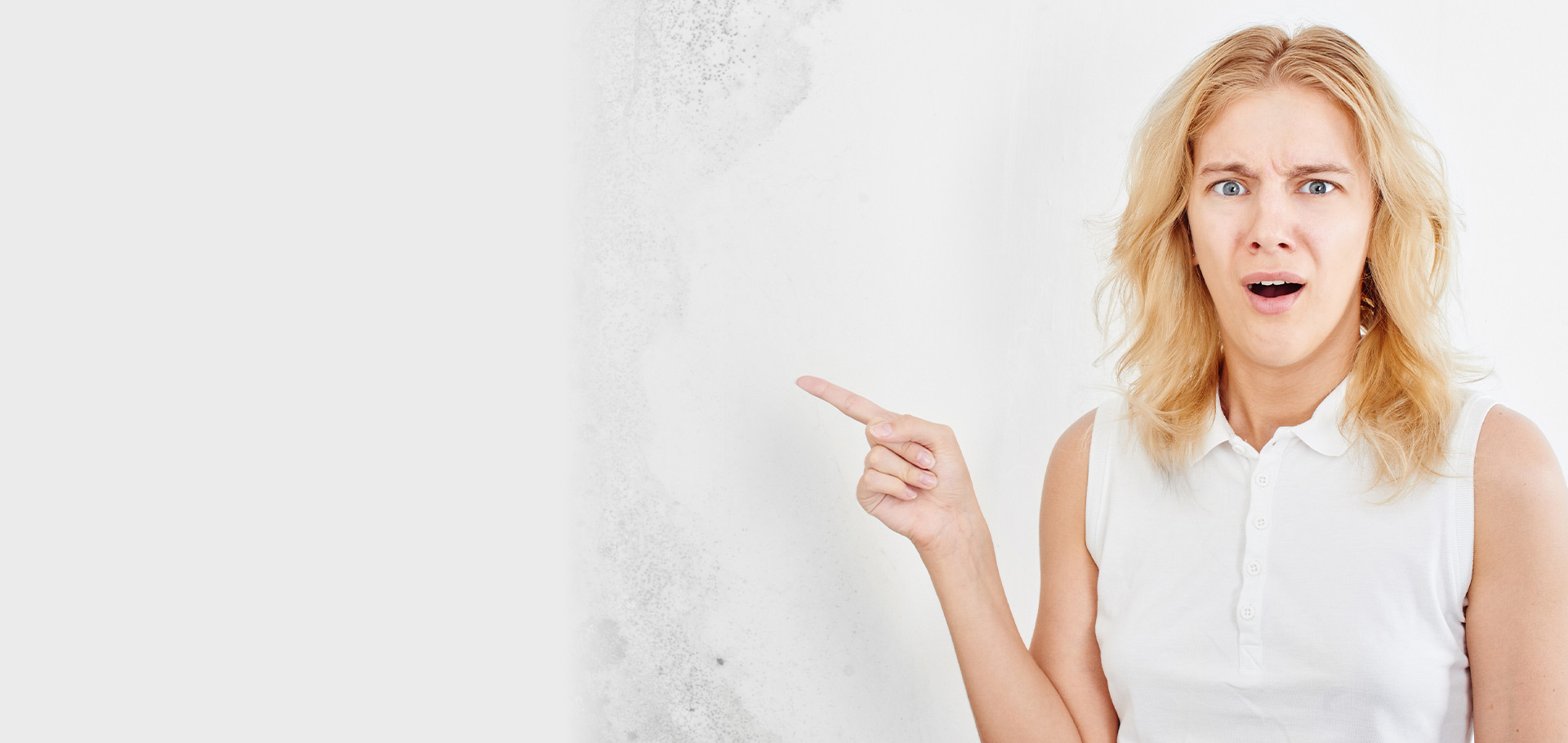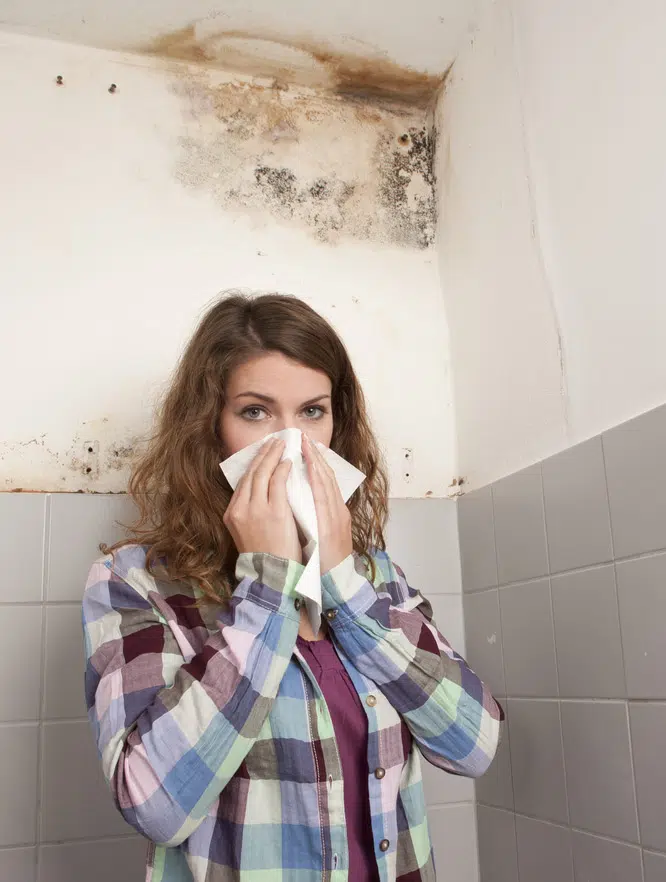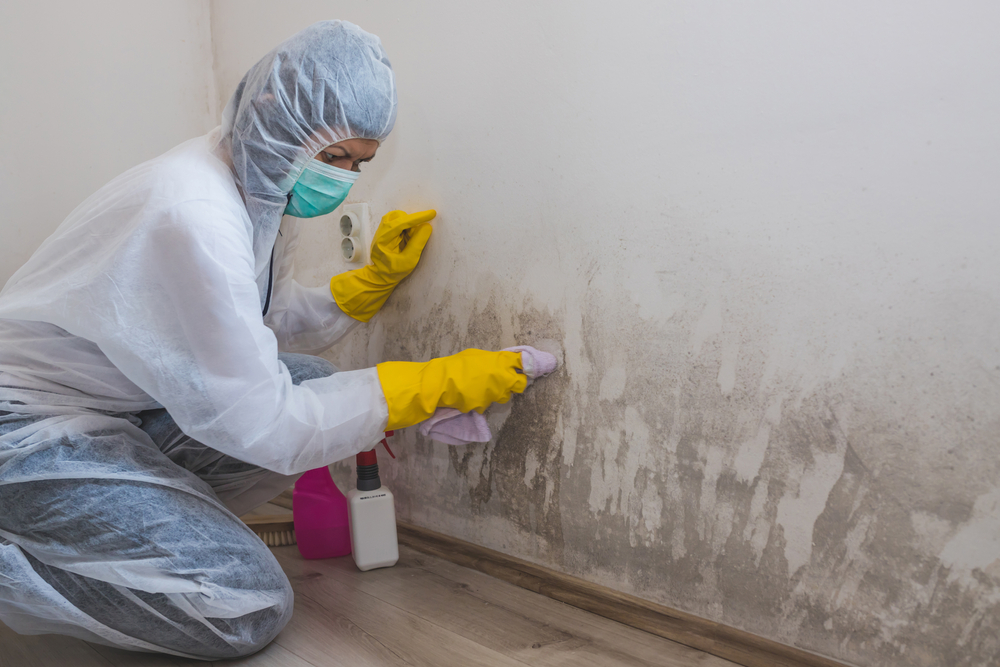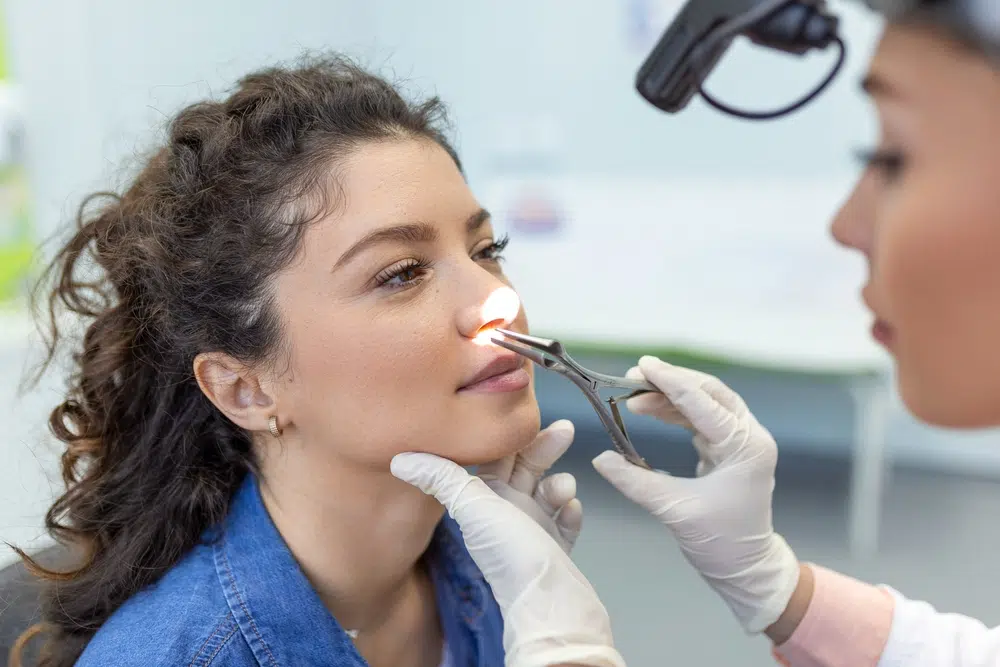
Mold Allergies Treatment
Mold spores are present in the air we all breathe, but only an estimated 3% to 10% of people are allergic to mold. These people have allergic reactions if they are exposed to too much of this fungus because their immune system recognizes it as an allergen and overreacts. At Penn Medicine Becker ENT & Allergy in New Jersey and Philadelphia our board-certified allergists are experienced in diagnosing and treating mold and other allergies.
- The Connection Between Mold Exposure and Allergic Symptoms
- Avoiding Mold Outdoors
- Innovative Therapies for Mold Allergies
- The Relevance of Immunotherapy
- Can Using a Humidifier Help Reduce Mold Allergies?
- Long-Term Treatment of Mold Allergies
- Seeing a Specialist When Over-the-Counter Remedies Don't Work
- Tips on Home Treatment for Mold Allergies
- Frequently Asked Questions about Mold Allergies
The Connection Between Mold Exposure and Allergic Symptoms
If you suspect you’re reacting to mold, you’re likely experiencing symptoms such as including runny nose, nasal congestion, shortness of breath, and stuffy nose. These are common indicators of a mold allergy, a condition where your immune system reacts to mold spores in the environment.
If you have a mold allergy, your body’s immune system will identify the allergen as a foreign substance and will release antibodies to fight it. This can lead to an intense inflammatory response that causes allergic responses such as sneezing, wheezing, and difficulty breathing.
There are many types of mold found throughout the United States, but some common types include Cladosporium, Alternaria, Aspergillus, and Penicillium. The type of fungus present in your home or workplace will depend on the local environment – for example, if there is poor ventilation or high humidity levels indoors.
If you think you may be suffering from a respiratory allergy due to mold exposure, it is important to seek professional medical advice from an allergist or immunologist who is familiar with bronchopulmonary aspergillosis (BPA). Your doctor will take into consideration factors such as your medical history and environmental factors when making a diagnosis and recommending the best treatment plan for you.


Avoiding Mold Outdoors
It’s important to reduce your exposure to mold spores if you have an allergy to them, as this can help prevent allergic asthma symptoms and other immune responses. When outdoors, try to avoid areas with high levels of indoor molds such as in damp basements or near standing water. Additionally, be aware of any potential sources of excess moisture inside your home such as pipe leaks or black mold which could increase the health risks associated with breathing in these kinds of molds.
Innovative Therapies for Mold Allergies
The treatment for mold allergies is determined by the severity of the individual’s reaction. At Penn Medicine Becker ENT & Allergy, we provide comprehensive care for allergy management.
Nasal Sprays to Reduce Inflammation
Nasal sprays can be used to reduce inflammation in the nasal passages caused by postnasal drip due to visible mold. Nasal corticosteroids are commonly prescribed to treat allergic conditions and can help reduce inflammation in the nasal passages. Allergy medications, such as a dust mask, may also be helpful in reducing exposure to airborne mold and other allergens. It is important to consult with your allergist or health care provider before starting any over-the-counter treatment and take into consideration your individual health condition after a physical examination.
Antihistamines for Allergy Symptoms
Antihistamines are a common treatment for mold allergies since they can be taken orally or through nasal lavage, which is an irrigation device used to flush out the nasal passages. Common symptoms of a mold allergy include skin rash, itchy eyes and nose, and respiratory reactions such as coughing or sneezing. These symptoms tend to worsen when exposed to triggers such as excessive moisture or ideal conditions for common molds to grow. Allegra Allergy is an example of an antihistamine that can be taken on a regular basis to reduce the response to mold. However, since long-term use of antihistamines has potential side effects, it is important to consult with your allergist prior to beginning any medications.
Over-the-Counter Medications for Relief
Over-the-counter medications can be helpful in relieving symptoms associated with an allergy to mold. These can include antihistamines to reduce the inflammation of the nasal passages, decongestants to reduce blockage, and corticosteroid nasal sprays to decrease mucosal swelling. Additionally, inhalers containing short-acting bronchodilators may be necessary for those with mild asthma. It is always important to consult with your allergist or health care provider before starting any over-the-counter treatment and take into consideration your individual health condition after a physical examination.
Building Tolerance: The Path Through Immunotherapy
Immunotherapy is an effective long-term treatment for mold allergies. Immunotherapy is used to help patients build up a tolerance to the allergens which trigger their symptoms, such as airborne mold spores. It is recommended for those who have experienced multiple symptoms over a period of time, have a family history of allergies, or reactions to mold that are severe or life-threatening.
Immunotherapy should be considered when there is evidence of increased exposure to triggers such as roof leaks and leaky pipes putting people at risk for asthma flare-ups or even a severe asthma attack. Additionally, if someone has been dealing with chronic nasal dryness and other irritating nasal symptoms due to excessive moisture indoors, immunotherapy may be beneficial in reducing their reactions to the allergen.
The Relevance of Immunotherapy
Immunotherapy offers a promising avenue for long-term relief from mold allergies. This treatment works by gradually exposing the body to the allergen, thereby reducing the severity of allergic reactions over time. Here are key aspects to consider:
Types of Immunotherapy
- Subcutaneous Immunotherapy (SCIT): Often referred to as allergy shots, SCIT involves regular injections of the allergen in increasing doses over a period of time. This method has been proven effective for various allergies, including mold, and can lead to lasting remission of allergy symptoms.
- Sublingual Immunotherapy (SLIT): This involves placing a tablet containing the allergen under the tongue daily. SLIT is a convenient and less invasive option, suitable for certain types of mold allergies and particularly appealing for patients who prefer to avoid injections.
Expected Outcomes
Patients undergoing immunotherapy can expect a gradual decrease in allergy symptoms, which can lead to a significant improvement in quality of life. The full benefits of immunotherapy often emerge after 3 to 5 years of consistent treatment, with many patients experiencing lasting relief even after the treatment has concluded.
Process and Duration
Immunotherapy for mold allergies is a structured and phased treatment:
- Initial Phase (Build-up Phase): This phase involves frequent injections (usually weekly) with gradually increasing allergen concentrations. It typically lasts between 3 to 6 months, depending on the patient’s response.
- Maintenance Phase: Once the effective therapeutic dose is reached, the frequency of injections reduces (usually to once a month). This phase continues for 3 to 5 years to build long-term tolerance.
- Expected Outcomes: Patients often notice a reduction in allergy symptoms and a decreased need for conventional allergy medications. The ultimate goal is to achieve long-term tolerance and significant symptom relief.
- Safety and Efficacy Monitoring: Throughout the treatment, regular check-ups with an allergist are essential. These appointments are used to monitor the effectiveness of the therapy and make any necessary safety adjustments.
Can Using a Humidifier Help Reduce Mold Allergies?
Using humidifiers for allergy relief can be an effective strategy to reduce mold allergies. Humidifiers add moisture to the air, preventing the dryness that promotes mold growth. By maintaining optimal humidity levels indoors, you can discourage mold from thriving and subsequently alleviate mold allergy symptoms.
Schedule your consultation
Long-Term Treatment of Mold Allergies
Long-term treatment for mold allergies should focus on reducing exposure to allergen triggers and controlling symptoms. Common allergens associated with mold include microscopic spores, dead skin cells, dust mites, pet dander, and pollen. It is important to identify the types of mold present in the home or office environment as well as any risk factors that may increase exposure to these allergens. For example, water damage due to roof leaks or plumbing problems can lead to increased mold growth indoors.
To reduce contact with these allergens, it is recommended to use air filters, dehumidifiers, and exhaust fans in areas where there is a risk for mold growth. Additionally, salt water nasal rinses can be used daily to flush out foreign invaders such as airborne particles from the nasal passages. For a definitive diagnosis, specialized tests are conducted by allergy experts. These may include skin prick tests or specific IgE blood tests, which help identify your sensitivity to mold spores.
Advanced Medical Interventions
For individuals with severe mold allergies or those who do not respond adequately to conventional treatments, advanced medical interventions may be necessary. These include:
- Biologic Therapies: Biologic medications, such as monoclonal antibodies, target specific pathways in the immune system that contribute to allergic inflammation. These drugs can be particularly effective for patients with severe allergic asthma triggered by mold exposure. Examples include Omalizumab (Xolair), which is approved for use in patients with allergic asthma and works by blocking immunoglobulin E (IgE), a key player in the allergic response.
- Targeted Nasal Sprays and Inhalers: Beyond standard corticosteroid sprays, newer formulations and delivery methods can offer more targeted relief from nasal and respiratory symptoms associated with mold allergies. These may include sprays that combine antihistamines and corticosteroids for a more comprehensive approach to symptom management.
- Environmental Control Systems: Advanced air purification and humidity control systems can be installed in homes and workplaces to reduce mold spore levels in the environment. These systems can be particularly beneficial for individuals with severe allergies, as they minimize exposure to the allergen.
Seeing a Specialist When Over-the-Counter Remedies Don’t Work
When over-the-counter remedies fail to provide relief from mold allergies, it is important to seek medical advice from an allergist. An allergist can diagnose the type of mold allergy a person is dealing with and create a treatment plan that meets their individual needs. A specialist may begin by performing skin tests and taking a blood sample to look for antibodies generated in response to particular types of molds. In more severe cases, such as those involving lung inflammation due to high levels of mold exposure, the allergist may suggest additional testing or refer the patient to another specialist for further evaluation. Treatment options may include medications, immunotherapy, nasal rinses, or lifestyle changes to reduce exposure and improve symptoms such as an itchy nose or eyes.

Tips on Home Treatment for Mold Allergies
Home treatment for mold allergies should focus on reducing exposure to mold spores and controlling symptoms. In some cases, a doctor may prescribe mold extract injections to desensitize the body to certain types of molds; however, this type of therapy is generally only used for severe respiratory mold allergies.
To reduce contact with allergens indoors, it is important to maintain proper ventilation in living spaces by opening windows or using a ventilation fan when needed. Moisture meters can be used to detect levels of household mold growth and indicate where water seepage might be occurring and causing mold growth. Additionally, preventive measures such as repairing plumbing issues and keeping garbage cans covered can help reduce the further spread of allergen-producing fungus indoors.
For those experiencing symptoms such as nasal dryness or a blocked nose due to indoor exposure to mold, symptom relief can often be found through the use of oral decongestants or saline nasal rinses. It is important to note that symptoms may become worse if preventive measures are not taken and exposure continues over time; therefore it is important to follow the advice provided by your doctor when treating mold allergies at home.

Pick one of our convenient locations
for your Mold Allergy Treatment
Why Choose Our Specialists?
- Dr. Elias Akl, is a distinguished allergist and immunologist based in Philadelphia. He holds board certifications in Allergy and Immunology as well as Internal Medicine, showcasing his expertise in multiple medical disciplines. Dr. Akl is not only board-certified in internal medicine but also a Fellow of the American Academy of Allergy Asthma and Immunology (FAAAAI).
- Dr. Kathryn Edwards, Director of Allergy & Immunology at The Penn Medicine Becker ENT & Allergy Center, is a board-certified allergist and immunologist who specializes in the diagnosis and treatment of allergies, food allergies, skin conditions, and asthma. She is a highly trained physician with extensive experience in the military, where she served as a pediatrician and chief of Allergy/Immunology. Dr. Edwards provides care for patients of all ages, from neonates to geriatrics.
- Dr. Naba Sharif is a highly skilled board-certified Allergist and Immunologist with expertise in diagnosing and treating allergies, including environmental and seasonal allergies, food allergies, and asthma. She received her medical degree from SUNY at Stony Brook School of Medicine, completed a Pediatrics residency at Hasbro Children’s Hospital of Brown University, and pursued a fellowship in Allergy and Immunology at the North Shore-Long Island Jewish Health System. She practiced as a Pediatrician and Allergist-Immunologist at Kaiser Permanente in Washington DC, was recognized as a Top Doctor by Washingtonian Magazine from 2016 to 2020, and is a Fellow of the American Academy of Allergy, Asthma & Immunology and the American College of Allergy, Asthma & Immunology. Dr. Sharif is committed to community service, health education, empowerment, and advocacy for the underprivileged.
- Dr. Jamie Zacharias is a highly accomplished and board-certified Allergist and Immunologist hailing from South Jersey. She pursued her education in her hometown, graduating from Bishop Eustace Preparatory School, and furthered her academic journey by earning her bachelor’s and medical degrees from Drexel University and the College of Medicine in Philadelphia, PA. Dr. Zacharias continued her medical training with an Internal Medicine internship and residency at Drexel University College of Medicine/Hahnemann University Hospital. Following this, she completed a comprehensive Allergy and Immunology fellowship at Penn State Hershey Medical Center, where she actively engaged in asthma research, particularly focusing on patient demographics and phenotyping. Dr. Zacharias holds memberships in esteemed organizations such as the Pennsylvania Allergy and Asthma Association, the American Academy of Allergy, Asthma, and Immunology, and the American College of Allergy, Asthma, and Immunology. Her specialization encompasses the diagnosis and treatment of various conditions, including asthma, immunodeficiencies, seasonal and environmental allergies, allergic reactions (including drug and food allergies), and skin conditions such as hives and eczema. Dr. Zacharias is dedicated to providing care across a wide age spectrum, from pediatric to geriatric patients, and she is excited to contribute to the well-being of her community where she has deep roots.
